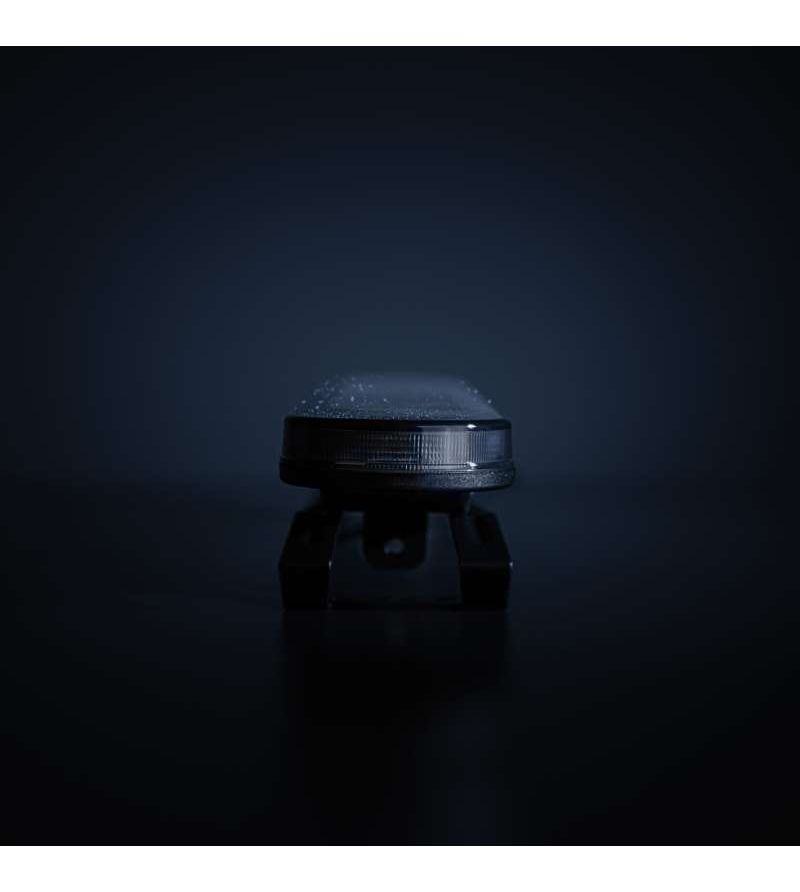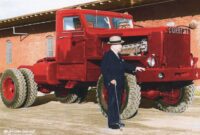Light Duty Box Trucks For Sale Near Me: Your Comprehensive Guide to Finding the Perfect Commercial Vehicle pickup.truckstrend.com
In the bustling world of commerce, efficient logistics are the backbone of countless businesses. From small parcel delivery services and catering companies to contractors needing to transport tools and materials, the demand for reliable and versatile vehicles is constant. Among the most popular and practical options for these diverse needs is the light duty box truck.
When you search for "Light Duty Box Trucks For Sale Near Me," you’re not just looking for a vehicle; you’re seeking a mobile solution, an extension of your business operations. These workhorses, typically defined as trucks with a Gross Vehicle Weight Rating (GVWR) under 26,000 pounds (often Class 2-4, meaning under 14,000 lbs GVWR for what’s truly considered "light duty"), offer the perfect blend of cargo capacity, maneuverability, and cost-effectiveness. They feature a separate, enclosed cargo area (the "box") mounted on a truck chassis, providing secure, weather-protected transport for goods of all kinds. The "near me" aspect is crucial, allowing for convenient inspections, test drives, local servicing, and often more favorable purchasing logistics. This comprehensive guide will delve into everything you need to know about finding and acquiring the ideal light duty box truck to propel your business forward.
Light Duty Box Trucks For Sale Near Me: Your Comprehensive Guide to Finding the Perfect Commercial Vehicle
Understanding Light Duty Box Trucks: What Are They?
Light duty box trucks are purpose-built commercial vehicles designed for transporting goods and equipment efficiently. Unlike pickup trucks, they offer a fully enclosed, often customizable, and secure cargo space. They are distinct from their heavy-duty counterparts in their lower GVWR, which translates to easier handling, better fuel economy, and often no requirement for a Commercial Driver’s License (CDL) for operation in most states (typically for vehicles under 26,001 lbs GVWR).
Common chassis manufacturers for light duty box trucks include Ford (E-Series, Transit Cutaway), Chevrolet (Express Cutaway, Silverado 3500 HD Chassis Cab), Ram (ProMaster Cutaway, 3500/4500/5500 Chassis Cab), Isuzu (NPR series), and Hino (155 series). These chassis are then fitted with various types of box bodies, such as:
- Dry Freight Boxes: The most common type, ideal for general cargo, furniture, or non-perishable goods. They are weatherproof and secure.
- Refrigerated (Reefer) Boxes: Equipped with insulation and a refrigeration unit, perfect for transporting temperature-sensitive items like food, flowers, or pharmaceuticals.
- Curtain Side Boxes: Feature roll-up or slide-back curtains on the sides, allowing for easier loading and unloading, especially with forklifts.
- Stake Body with Sides: While not fully enclosed, some light duty chassis are fitted with stake bodies for open-air transport of specific materials.

Beyond the box type, features like roll-up rear doors versus swing doors, and the inclusion of a ramp or liftgate, significantly impact the truck’s functionality and suitability for different tasks.
Key Benefits of Owning a Light Duty Box Truck
Investing in a light duty box truck offers a multitude of advantages for businesses of all sizes:
- Versatility: From local deliveries and moving services to catering, landscaping, and construction, these trucks can be adapted to a vast array of commercial applications.
- Cargo Protection & Security: The enclosed box protects your goods from weather elements (rain, snow, sun) and offers enhanced security against theft compared to open-bed trucks.
- Brand Visibility: The large, flat surfaces of the box body provide an excellent canvas for branding, logos, and advertising, turning your truck into a mobile billboard.
- Maneuverability: Light duty trucks are generally easier to drive and park in urban environments, tight loading docks, and residential areas compared to larger commercial vehicles.
- Cost-Effectiveness: They typically have lower purchase prices, better fuel economy, and less expensive maintenance and insurance costs than heavy-duty trucks. Many don’t require a CDL, saving on driver training and licensing expenses.
- Increased Professionalism: A dedicated, well-maintained box truck projects a professional image to your clients, enhancing your business’s credibility.


Choosing the Right Light Duty Box Truck for Your Needs
Selecting the perfect light duty box truck requires careful consideration of your specific operational requirements.
-
Cargo Volume and Payload Capacity:
- Volume: How much space do you need? Box lengths typically range from 10 to 18 feet for light duty models. Consider the dimensions of the items you’ll be transporting.
- Payload: What is the maximum weight you’ll be carrying? This is crucial for safety and legal compliance. Ensure the truck’s payload capacity (GVWR minus curb weight) can handle your heaviest loads.
-
Gross Vehicle Weight Rating (GVWR):
- As mentioned, most light duty box trucks fall under 26,000 lbs GVWR, meaning a CDL is not required for operation in most states. Confirm the GVWR of any truck you consider and check your local licensing requirements.
-
Engine Type: Gas vs. Diesel:
- Gasoline: Generally less expensive to purchase, quieter, and cheaper to maintain. Ideal for shorter routes, frequent stops, and lower annual mileage.
- Diesel: Higher upfront cost but offers better fuel efficiency (especially under heavy loads), more torque for hauling, and longer engine life. Better for longer hauls and higher mileage operations.
-
Transmission: Most modern light duty box trucks come with automatic transmissions, simplifying driving, especially in stop-and-go city traffic. Manual transmissions are less common but can offer better fuel economy for some drivers.
-
Box Body Features:
- Rear Door Type: Roll-up doors save space but can be more prone to damage. Swing doors offer a wider opening but require more space behind the truck.
- Ramp vs. Liftgate: A pull-out ramp is suitable for lighter, wheeled items. A hydraulic liftgate (often tucked under the truck or articulating) is invaluable for heavy, bulky items, saving time and preventing injuries.
- Interior Features: E-track systems, tie-downs, interior lighting, and skylights can enhance usability and safety.
-
New vs. Used:
- New: Offers the latest technology, full warranty, and peace of mind. Higher initial cost.
- Used: Significant cost savings, but requires more diligent inspection. Can be a great value if well-maintained. Consider certified pre-owned options from dealerships.
Where to Find Light Duty Box Trucks For Sale Near You
The "near me" aspect of your search is vital for practical reasons like inspection, test driving, and future servicing. Here are the best places to look:
- Commercial Truck Dealerships: These specialized dealerships offer both new and used light duty box trucks. They often have a wide selection, financing options, and service departments. Major truck brands like Ford Commercial, Chevy Commercial, Isuzu, and Hino have dedicated dealerships.
- Online Marketplaces:
- Dedicated Commercial Vehicle Sites: Websites like TruckPaper.com, CommercialTruckTrader.com, and MyLittleSalesman.com list thousands of commercial vehicles from dealerships and private sellers nationwide. You can filter by location.
- General Classifieds: Craigslist, Facebook Marketplace, and eBay Motors can also yield local results, often from private sellers or smaller dealerships.
- Fleet Sales and Auctions: Large companies (e.g., utility companies, freight carriers, food distributors) regularly cycle out their older fleet vehicles. These can be purchased directly or through commercial vehicle auctions.
- Rental Company Sales: Major rental companies like Penske, Ryder, and U-Haul frequently sell off their used rental trucks. These vehicles are typically well-maintained but might have high mileage.
- Private Sellers: Check local classifieds or word-of-mouth. While potentially offering lower prices, private sales come with less buyer protection and require more thorough due diligence.
When searching "near me," prioritize visiting the truck in person. This allows you to assess its condition, test drive it, and confirm it meets your specific requirements before committing to a purchase.
Important Considerations Before Buying
A significant investment like a commercial vehicle demands careful planning and due diligence.
- Budget Beyond the Purchase Price: Factor in ongoing costs like fuel, commercial vehicle insurance, routine maintenance, potential repairs, tires, and registration fees.
- Condition of Used Trucks: This is paramount.
- Pre-Purchase Inspection: Always arrange for an independent, certified mechanic to inspect the truck thoroughly. This can uncover hidden issues with the engine, transmission, brakes, suspension, electrical system, and the box body itself.
- Service Records: Request complete maintenance and service history. A well-documented history indicates responsible ownership.
- Check for Rust: Inspect the chassis, frame, and body panels for signs of severe rust, which can compromise structural integrity.
- Tires and Brakes: These are significant wear items. Check tread depth and brake pad wear.
- Box Integrity: Look for leaks, damage to the interior or exterior, and proper functioning of doors, ramps, or liftgates.
- Financing and Insurance:
- Financing: Explore commercial truck loans or leases through dealerships, banks, or specialized commercial lenders.
- Insurance: Obtain quotes for commercial vehicle insurance. This is mandatory and typically more expensive than personal auto insurance due to higher liability risks.
- Maintenance and Service: Ensure there are reliable service centers and parts suppliers for your chosen truck make and model in your area. Downtime is lost revenue.
- Registration and Licensing: Understand the specific state and local requirements for registering and licensing a commercial vehicle, including any Department of Transportation (DOT) regulations if you plan to cross state lines or exceed certain weight thresholds.
Tips for a Successful Purchase
- Clearly Define Your Needs: Before you start looking, make a detailed list of what you need the truck for (cargo type, weight, routes, daily mileage, required features).
- Set a Realistic Budget: Include not just the purchase price but also all associated costs.
- Research Thoroughly: Compare different makes, models, and years. Read reviews and owner testimonials.
- Inspect Diligently (and Professionally): Do your own visual inspection, then get a professional mechanic’s opinion.
- Test Drive Extensively: Drive it under conditions similar to how you’ll use it (e.g., loaded if possible). Check brakes, steering, acceleration, and listen for unusual noises.
- Negotiate Effectively: Don’t be afraid to negotiate the price. Have comparable listings ready to support your offer.
- Understand the Total Cost of Ownership (TCO): Consider fuel efficiency, projected maintenance, and insurance costs over the lifespan of the truck.
- Don’t Rush: Take your time. A well-considered purchase will save you headaches and money in the long run.
Light Duty Box Truck Estimated Price Guide
Please note: Prices are highly variable based on mileage, condition, features (e.g., liftgate, refrigeration), and market demand. These are general estimates for trucks found near you.
| Truck Type/Chassis Example | Condition | GVWR Range (approx.) | Box Length (approx.) | Key Features/Notes | Estimated Price Range (USD) |
|---|---|---|---|---|---|
| New Ford Transit/E-Series Cutaway Box Truck | New | 9,950 – 12,500 lbs | 12-16 ft | Full warranty, latest tech, customizable. | $45,000 – $75,000+ |
| New Isuzu NPR/Hino 155 Box Truck | New | 14,500 – 19,500 lbs | 14-18 ft | Cab-over design for maneuverability, often diesel. | $60,000 – $90,000+ |
| Used (1-3 years old, low mileage) | Excellent | 9,950 – 19,500 lbs | 12-18 ft | Near-new condition, possibly still under some warranty. | $35,000 – $65,000 |
| Used (3-7 years old, moderate mileage) | Good | 9,950 – 19,500 lbs | 12-18 ft | Well-maintained, good value, may need some minor repairs soon. | $20,000 – $40,000 |
| Used (7+ years old, high mileage) | Fair | 9,950 – 19,500 lbs | 10-16 ft | Budget-friendly, higher risk of maintenance issues, ideal for occasional use. | $10,000 – $25,000 |
| Specialty (Refrigerated) Box Truck | New | 12,000 – 19,500 lbs | 12-16 ft | Includes insulation and refrigeration unit. | $70,000 – $120,000+ |
| Used Specialty (Refrigerated) Box Truck | Good-Fair | 12,000 – 19,500 lbs | 12-16 ft | Condition of reefer unit is critical, higher maintenance. | $30,000 – $70,000 |
| Used Rental Fleet (Ryder, Penske, U-Haul) | Fair-Good | 9,950 – 14,500 lbs | 10-17 ft | High mileage common, well-maintained but often basic features. | $15,000 – $35,000 |
Frequently Asked Questions (FAQ)
Q1: Do I need a CDL (Commercial Driver’s License) to drive a light duty box truck?
A1: Generally, no. In the United States, a CDL is typically required for vehicles with a GVWR of 26,001 pounds or more, or for specific endorsements like hazardous materials. Most light duty box trucks fall well below this threshold. Always verify specific state regulations.
Q2: What’s the typical fuel economy for a light duty box truck?
A2: Fuel economy varies significantly based on engine type (gas vs. diesel), GVWR, cargo weight, driving conditions, and vehicle maintenance. Gasoline models might range from 8-15 MPG, while diesel models could offer 10-18 MPG.
Q3: What does GVWR mean, and why is it important?
A3: GVWR stands for Gross Vehicle Weight Rating. It’s the maximum operating weight of a vehicle as specified by the manufacturer, including the vehicle’s empty weight, fuel, passengers, and cargo. It’s crucial for determining licensing requirements, legal load limits, and ensuring safe operation.
Q4: Should I buy a new or used light duty box truck?
A4: New trucks offer reliability and warranties but come at a higher cost. Used trucks offer significant savings but require thorough inspection and potentially more immediate maintenance. Your budget, desired features, and risk tolerance should guide this decision.
Q5: How do I determine the right size box for my needs?
A5: Consider the largest items you’ll routinely transport, the typical volume of your cargo, and any height or width restrictions for loading/unloading areas. Measure your common cargo and compare it to available box dimensions.
Q6: What is a liftgate, and do I need one?
A6: A liftgate is a hydraulic platform mounted on the rear of the truck that raises and lowers cargo from ground level to the truck bed. It’s essential if you regularly transport heavy, bulky items that cannot be easily loaded by hand or ramp, saving time, labor, and preventing injuries.
Q7: What should I specifically look for when inspecting a used box truck?
A7: Beyond the standard mechanical checks (engine, transmission, brakes), pay close attention to the box body itself: look for leaks, water damage, signs of structural fatigue, rust on the frame, and ensure all doors, latches, and the liftgate (if present) function smoothly. Check tire condition and even wear.
Q8: How much does commercial truck insurance cost?
A8: Commercial vehicle insurance costs vary widely based on your business type, coverage limits, driving record, vehicle type, and location. It will be significantly higher than personal auto insurance due to increased liability. Get multiple quotes from commercial insurance providers.
Conclusion
Finding the right "Light Duty Box Trucks For Sale Near Me" is a strategic step for any business aiming to enhance its operational efficiency and expand its capabilities. These versatile vehicles serve as the backbone for countless delivery, service, and transport operations, offering a cost-effective and practical solution for moving goods securely. By thoroughly understanding your needs, diligently researching available options, and performing comprehensive inspections, you can make an informed decision that yields significant returns for your business. A well-chosen light duty box truck is more than just a vehicle; it’s a critical asset that drives productivity, professionalism, and ultimately, your company’s success.



